Intro
Ectopic pregnancy affects 1 in 50 pregnancies, causing complications. Learn about ectopic pregnancy symptoms, risks, and treatment options for this life-threatening condition, also known as tubal pregnancy or extrauterine pregnancy.
Ectopic pregnancy is a serious and potentially life-threatening condition that affects thousands of women worldwide every year. It occurs when a fertilized egg implants outside the uterus, typically in the fallopian tube, and is unable to develop into a viable pregnancy. The condition can cause severe abdominal pain, vaginal bleeding, and other symptoms that require immediate medical attention. Despite its severity, many women are unaware of the risks and warning signs of ectopic pregnancy, highlighting the need for greater awareness and education.
The importance of understanding ectopic pregnancy cannot be overstated, as it is a leading cause of maternal mortality and morbidity in the first trimester. According to the American Pregnancy Association, ectopic pregnancy accounts for approximately 1% of all pregnancies, resulting in around 50,000 to 100,000 cases per year in the United States alone. Globally, the incidence of ectopic pregnancy is estimated to be around 1.5% to 2% of all pregnancies, with some studies suggesting that the rate may be higher in certain populations.
The risk factors for ectopic pregnancy are well-established, and include a history of pelvic surgery, infertility, and previous ectopic pregnancy. Women who have had a previous ectopic pregnancy are at increased risk of experiencing another ectopic pregnancy, with some studies suggesting that the risk may be as high as 15% to 20%. Other risk factors include smoking, advanced maternal age, and the use of assisted reproductive technology (ART) such as in vitro fertilization (IVF).
Ectopic Pregnancy Causes and Risk Factors
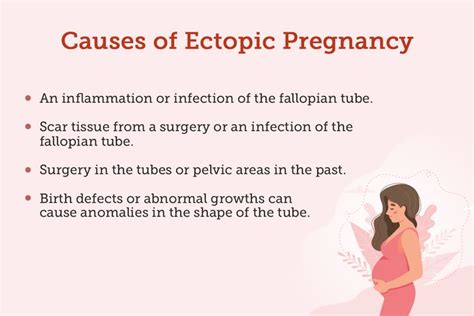
The causes of ectopic pregnancy are complex and multifactorial, involving a combination of genetic, environmental, and hormonal factors. One of the primary causes is damage to the fallopian tube, which can occur as a result of pelvic surgery, infection, or other trauma. This damage can cause the fertilized egg to implant in the fallopian tube instead of the uterus, leading to an ectopic pregnancy. Other causes include hormonal imbalances, such as those that occur with polycystic ovary syndrome (PCOS), and genetic mutations that affect the development of the embryo.
Types of Ectopic Pregnancy
There are several types of ectopic pregnancy, including: * Tubal pregnancy: This is the most common type, accounting for around 90% of all ectopic pregnancies. It occurs when the fertilized egg implants in the fallopian tube. * Ovarian pregnancy: This type occurs when the fertilized egg implants in the ovary. * Abdominal pregnancy: This is a rare type that occurs when the fertilized egg implants in the abdominal cavity. * Cervical pregnancy: This type occurs when the fertilized egg implants in the cervix.Ectopic Pregnancy Symptoms and Diagnosis
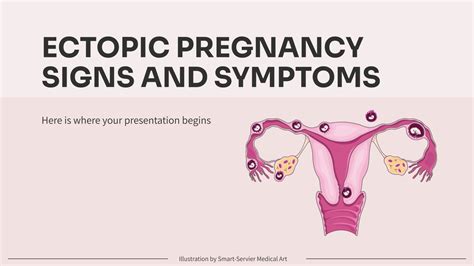
The symptoms of ectopic pregnancy can vary, but typically include severe abdominal pain, vaginal bleeding, and other symptoms such as nausea, vomiting, and dizziness. In some cases, women may experience no symptoms at all, or may experience symptoms that are similar to those of a normal pregnancy. Diagnosis is typically made using a combination of ultrasound, blood tests, and physical examination. A pelvic exam may reveal tenderness and guarding, while an ultrasound may show an empty uterus and a mass in the fallopian tube.
Ectopic Pregnancy Treatment Options
The treatment options for ectopic pregnancy depend on the severity of the condition and the overall health of the woman. In some cases, treatment may involve: * Expectant management: This involves monitoring the woman's condition and waiting to see if the ectopic pregnancy resolves on its own. * Medical management: This involves using medication to stop the growth of the embryo and allow the body to absorb the pregnancy tissue. * Surgical management: This involves surgically removing the ectopic pregnancy and repairing any damage to the fallopian tube.Ectopic Pregnancy Prevention and Awareness
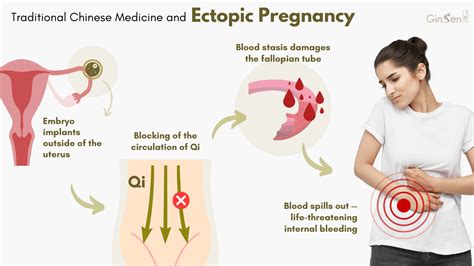
Prevention of ectopic pregnancy is crucial, and involves a combination of lifestyle changes and medical interventions. Women who are at risk of ectopic pregnancy should:
- Quit smoking: Smoking is a significant risk factor for ectopic pregnancy, and quitting can reduce the risk.
- Avoid pelvic surgery: Pelvic surgery can damage the fallopian tube and increase the risk of ectopic pregnancy.
- Use birth control: Using birth control can reduce the risk of unintended pregnancy and ectopic pregnancy.
- Get regular check-ups: Regular check-ups with a healthcare provider can help identify any potential risks and allow for early intervention.
Ectopic Pregnancy Support and Resources
Women who have experienced an ectopic pregnancy may need emotional support and counseling to cope with the physical and emotional aftermath. There are several resources available, including: * Support groups: Joining a support group can provide a safe and supportive environment to share experiences and connect with others who have gone through similar experiences. * Online forums: Online forums and discussion groups can provide a wealth of information and support from others who have experienced ectopic pregnancy. * Counseling: Individual counseling can provide a safe and supportive environment to process emotions and work through the experience.Ectopic Pregnancy and Fertility
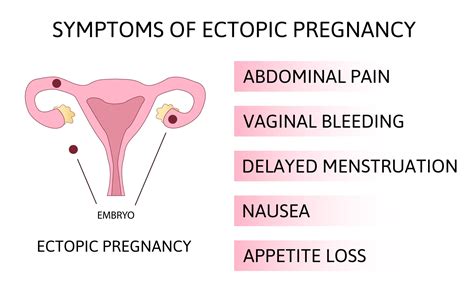
Ectopic pregnancy can have a significant impact on fertility, particularly if the fallopian tube is damaged during the pregnancy. Women who have had an ectopic pregnancy may experience:
- Reduced fertility: Damage to the fallopian tube can reduce fertility and make it more difficult to become pregnant.
- Increased risk of future ectopic pregnancy: Women who have had an ectopic pregnancy are at increased risk of experiencing another ectopic pregnancy.
- Emotional trauma: The experience of an ectopic pregnancy can be emotionally traumatic, and may affect a woman's desire to become pregnant again.
Ectopic Pregnancy and Mental Health
The experience of an ectopic pregnancy can have a significant impact on mental health, particularly if the pregnancy was desired. Women may experience: * Grief and loss: The loss of a pregnancy can be a significant source of grief and loss. * Anxiety and depression: The experience of an ectopic pregnancy can lead to anxiety and depression, particularly if the woman is struggling to come to terms with the loss. * Trauma: The experience of an ectopic pregnancy can be traumatic, particularly if the woman experienced severe symptoms or complications.Ectopic Pregnancy and Relationships
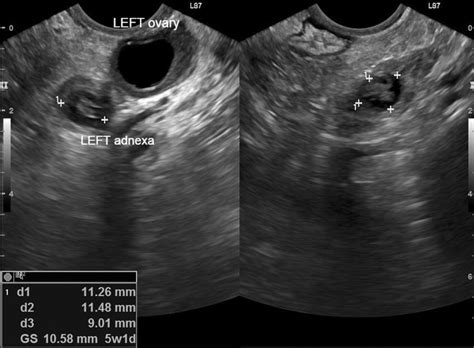
The experience of an ectopic pregnancy can have a significant impact on relationships, particularly if the pregnancy was desired. Couples may experience:
- Communication challenges: The experience of an ectopic pregnancy can be difficult to communicate about, particularly if the couple is struggling to come to terms with the loss.
- Emotional distance: The experience of an ectopic pregnancy can create emotional distance between partners, particularly if they are struggling to process their emotions.
- Intimacy challenges: The experience of an ectopic pregnancy can affect intimacy and sexual relationships, particularly if the woman is experiencing physical or emotional trauma.
Ectopic Pregnancy and Society
The experience of an ectopic pregnancy can have a significant impact on society, particularly in terms of awareness and education. There is a need for greater awareness and understanding of ectopic pregnancy, particularly among healthcare providers and the general public. By increasing awareness and education, we can reduce the risk of ectopic pregnancy and improve outcomes for women who experience this condition.What is an ectopic pregnancy?
+An ectopic pregnancy is a pregnancy that occurs outside the uterus, typically in the fallopian tube.
What are the symptoms of an ectopic pregnancy?
+The symptoms of an ectopic pregnancy can include severe abdominal pain, vaginal bleeding, and other symptoms such as nausea, vomiting, and dizziness.
How is an ectopic pregnancy diagnosed?
+An ectopic pregnancy is typically diagnosed using a combination of ultrasound, blood tests, and physical examination.
What are the treatment options for an ectopic pregnancy?
+The treatment options for an ectopic pregnancy depend on the severity of the condition and the overall health of the woman, and may include expectant management, medical management, or surgical management.
Can an ectopic pregnancy be prevented?
+While an ectopic pregnancy cannot be completely prevented, there are steps that can be taken to reduce the risk, such as quitting smoking, avoiding pelvic surgery, and using birth control.
In conclusion, ectopic pregnancy is a serious and potentially life-threatening condition that requires immediate medical attention. By increasing awareness and education, we can reduce the risk of ectopic pregnancy and improve outcomes for women who experience this condition. If you or someone you know has experienced an ectopic pregnancy, it is essential to seek support and counseling to cope with the physical and emotional aftermath. We invite you to share your experiences and comments below, and to take action to raise awareness and support for ectopic pregnancy research and education.
